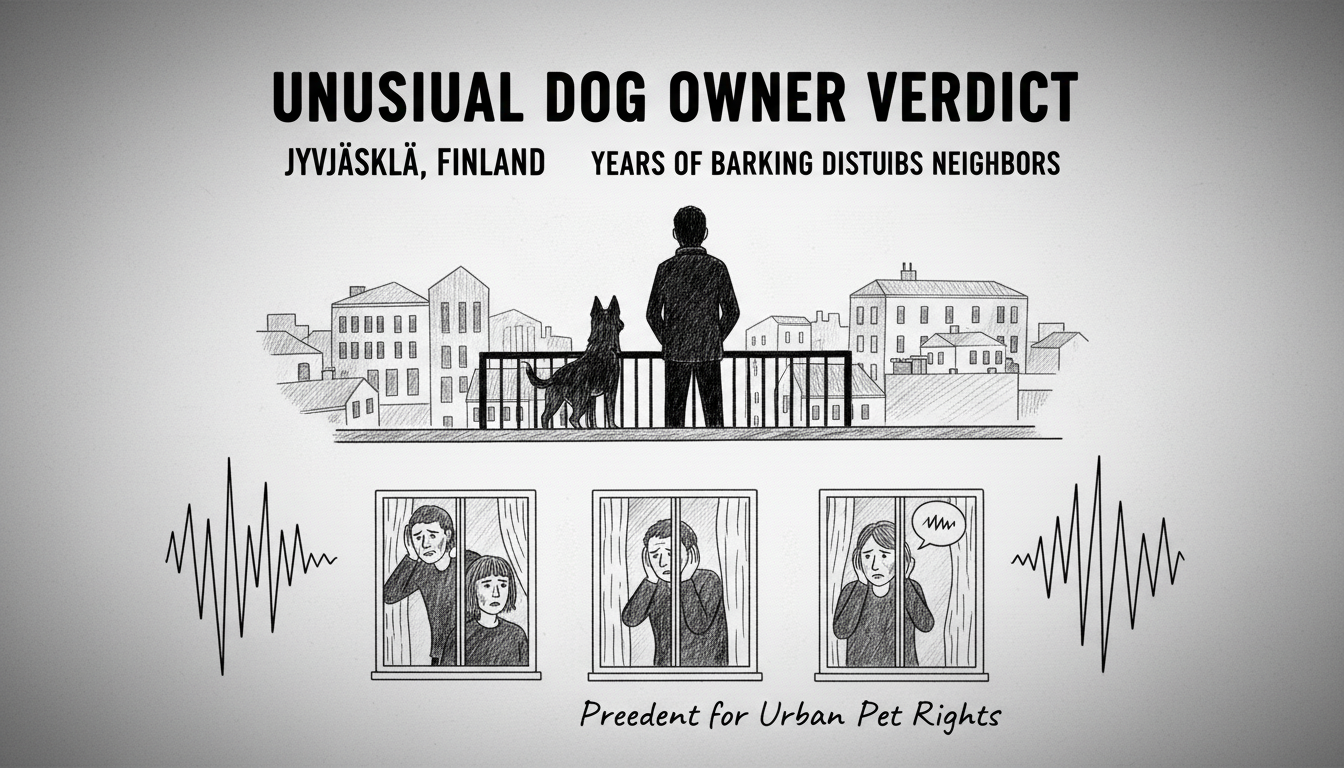A Finnish court has convicted a dog owner for breaching domestic peace after her pet's persistent barking disrupted an entire apartment building for over a year. The Central Finland District Court ruled that the barking was both prolonged and intense enough to disturb neighbors' peace, even affecting residents in adjacent stairwells separated by one apartment.
The case originated from a residential building in Jyväskylä's Kuokkala district, where multiple neighbors reported sleep deprivation and mental distress. One 41-year-old male resident filed the formal criminal complaint after exhausting all other options. He had initially tried speaking with the owner directly, left polite notes, filed disturbance reports with the building management, and even called emergency services multiple times when the situation became unbearable.
Finnish law takes domestic peace violations seriously, with potential penalties including fines or even imprisonment for severe cases. This ruling demonstrates how courts balance pet ownership rights against neighbors' right to quiet enjoyment of their homes. The legal concept of 'kotirauha' or domestic peace holds particular importance in Finland's densely populated urban areas.
What makes this case noteworthy is the duration of the disturbance and the court's recognition of how far sound can travel in modern apartment buildings. The barking continued from September 2023 until September 2024, when the affected neighbor moved out of the building entirely. Two other residents testified about the impact on their daily lives and sleep patterns.
For international readers, this case highlights Finland's approach to neighbor disputes and animal ownership regulations. Unlike some countries where such matters might be handled through civil courts or mediation, Finland treats persistent domestic disturbances as criminal matters when they substantially impact quality of life. The conviction shows that Finnish authorities won't hesitate to intervene when informal resolutions fail.
This ruling may influence how building managers and housing associations handle similar complaints in the future. It sets a precedent that prolonged noise disturbances, even from pets, can have legal consequences. The case also raises questions about responsible pet ownership in multi-unit buildings and what measures owners should take when their animals cause repeated disturbances.
The verdict sends a clear message to pet owners in Nordic countries: being considerate of neighbors isn't just good manners—it's a legal requirement. As urban density increases across Finnish cities, such cases may become more common, forcing courts to repeatedly define where reasonable noise ends and criminal disturbance begins.

